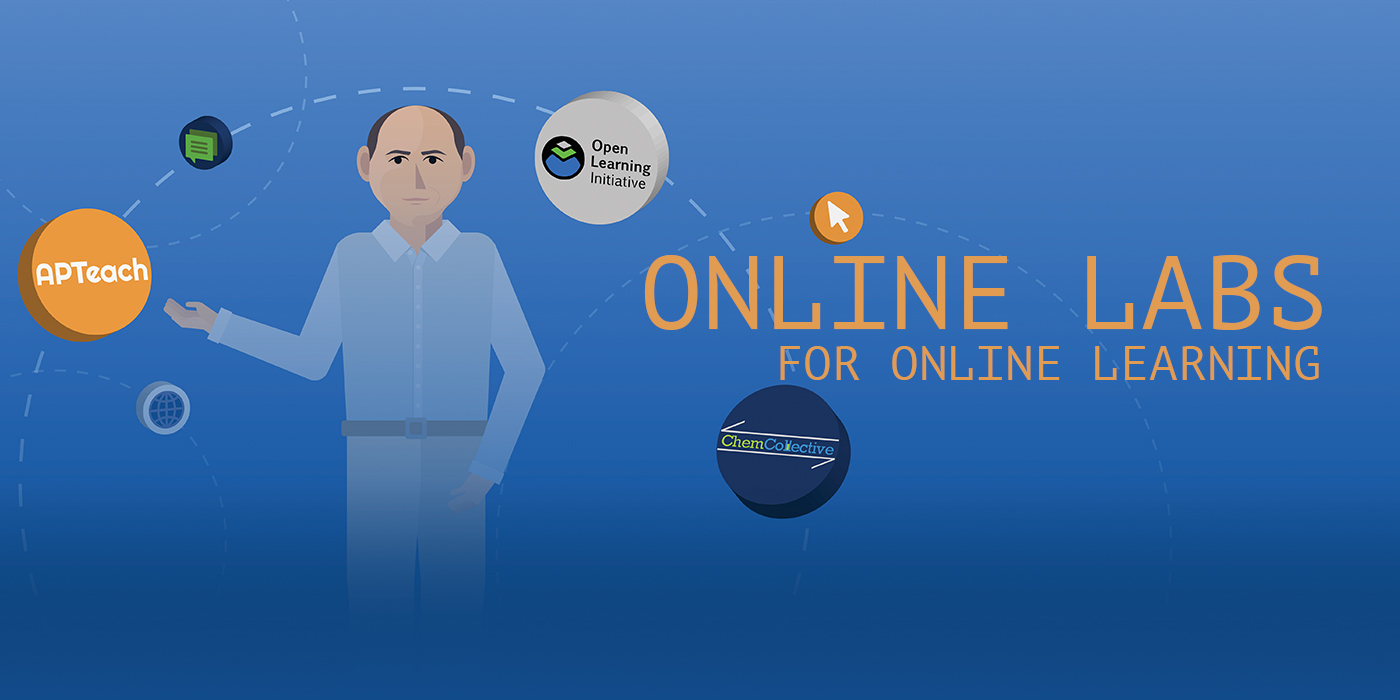
David Yaron helps provide free resources for high school and higher education teachers during COVID-19
As the United States continues to combat the spread of the coronavirus (COVID-19), schools around the country have seen major disruptions as classes move online or pause altogether.
In response to this whirlwind change, Chemistry Professor David Yaron has helped provide free, online resources and materials for teachers as they adjust to remote instruction.
One of the biggest challenges for science teachers has been figuring out how to translate lab work to a virtual space. This was a problem that Yaron knew he could help solve. For decades, Yaron and his colleagues Michael Karabinos and Sandy Raysor have run ChemCollective, a collection of virtual labs, simulations and tutorials. Yaron and Raysor hosted a webinar and created a Google doc to show teachers how to adapt the site’s virtual labs for their classes.
Yaron has long had an interest in educational outreach and pedagogical research. “We realized that students can do paper and pencil problems and really not learn much chemistry,” he said. That’s partly why he developed ChemCollective. For example, in a virtual lab on solubility, students are asked to predict the solubility of copper chloride at different temperatures and then test their predictions by creating the solution on their screen. In paper and pencil problems when students are given the data, it often becomes just an algebra exercise, Yaron notes. But “with our virtual lab, students have to generate the data, and this helps them start to think about the chemistry that is involved,” he said.
In March, Carnegie Mellon University’s Open Learning Initiative (OLI) announced that it would make its courseware materials available for free for institutions impacted by COVID-19. A part of the Simon Initiative, OLI is an online learning platform that combines an interactive textbook with online activities, assessments and simulations. For colleges and universities, Yaron and Raysor, who is the director of ChemCollective, have made their OLI General Chemistry 1 and 2 courses available for free. And for high schools, Yaron and collaborator Jodi Davenport from WestEd, an educational nonprofit institute, provided free access to materials developed in OLI through a grant from the Institute of Education Sciences (IES).
During this time, Yaron has also focused on the personal impacts on teachers.
Through a separate grant from IES, Yaron has been collaborating with CMU’s Human Computer Interaction Institute Assistant Professor Chinmay Kulkarni and Middle Tennessee State University Chemistry Professor Greg Rushton to create more effective communities for teachers. They have been testing how to create these online communities through their project APTeach, currently open to Advanced Placement (AP) Chemistry teachers.
With APTeach, they had been piloting online small group meetings where AP Chemistry teachers from all over the country could form supportive relationships with each other, something they don’t currently have a way to do.
But because of COVID-19, teachers have had to adjust quickly, figuring out how to move their classes online in an incredibly short amount of time. To help, Yaron, Kulkarni and Rushton have taken their pilot idea and opened it up to all AP Chemistry teachers by hosting webinars on Zoom. The webinars bring everyone together to talk about how to effectively teach online and specifically how to make it through the rest of the AP Chemistry material and prepare students for what will likely be an unusual AP exam.
The response has been amazing. Yaron said there were 100 teachers who attended the first webinar. They received a lot of positive feedback, too.
“I think what you are all hosting is excellent. It’s so enriching to have a visual of fellow like-minded teachers … trying to become better teachers and wanting to share best practices. I think as public school teachers, we’re so often reminded of how powerless we are. But the format is just that we’re all chemistry teachers, and it’s very comfortable,” said attendee Andrea Gearhart.
Yaron plans to host more webinars for APTeach as well as additional webinars for ChemCollective and his OLI courses.
“It looks like a lot more people are going to be experiencing online learning,” he said. “We’ll continue to do what we can to help.”
♦ by Emily Payne
